- Home
- Stephen Hunter
The Second Saladin Page 27
The Second Saladin Read online
Page 27
Lanahan’s rise was sudden and wondrous: he reported directly to Melman. He called Melman “Sam.” There was no Yost between them; it was as if a generation had been sliced out of the hierarchy. That is, Yost, the bishop, was gone; Lanahan reported directly to Sam, the cardinal. He had responsibility, control, power. He had people. He had nice little perks—a driver, a girl, a coffee cup that miraculously never seemed to empty.
“And they seemed to be getting along?” Sam asked in his mildly interested way, referring to Chardy and Danzig.
“Yes, Sam.” Miles rubbed his chin, where a pimple had burst that morning. “For some reason Danzig likes Paul. My people can’t figure it out.”
Melman sat back. “There’s an attraction to Paul, without a doubt.”
“Yes.”
“He has a certain World War Two glamour. Some of the older men, the old OSS types, had it too. And a few of the Special Operations people too. But only Paul, these days. It can be very exciting stuff.”
“Well”—not that Lanahan would disagree with Sam on anything of consequence; still, he’d throw out an occasional inoffensive counterpunch so as not to be thought the total yesman—“to a certain juvenile turn of mind, yes. Poor Trewitt loved Chardy, and look what it got him. It surprises me,” he blasted ahead confidently, “that a realist like Danzig could fall for a bullshit artist, a cowboy, like Chardy.”
“He’s scared, Miles. That’s the psychology of it.”
“I suppose.”
“You’re monitoring them? I mean, without being overly obvious about it?”
“Yes, Sam. Of course.”
“Anything else?”
Ah. This looked to be a good moment to lay on Sam the story of Trewitt in Mexico and the secret link to Chardy via Resurrection, which Lanahan had been storing away for just the right moment. He took a quick look about Sam’s bright office, and leaned forward as if to begin to speak.
“Now there is one thing, Miles.” Sam cut him off. “I’ve been meaning to speak to you about this. I foresee one potential problem. I’ve already run into traces of it in Danzig.”
Was this a test?
Miles said nothing. He still felt as though he’d blundered into an audience with the cardinal.
“Miles, both these men—Danzig and Chardy—have tendencies toward paranoia. Well-documented, wouldn’t you agree?”
“Yes.”
“What bothers me is that if their bond becomes too close, there’s no guessing what they might concoct. And certain ideas can be very dangerous to our line of work. Remember the great double-agent scare of the mid-seventies? No, of course not, you were just starting. And you don’t remember the fifties either, when I was just starting. At any rate, this sort of thing can wreck a division, a whole directorate. The whole shop. Do you follow?”
Sam peered at Miles intensely. He had pale, shallow eyes. Sam was a handsome man. Smooth, brilliant Sam. Everybody wanted a little of Sam’s famous calm charm.
“Yes, sir,” said Miles.
“Let’s declare a first operating principle. A bedrock, a foundation. And that’s that this is first of all a security job. A matter of protection. Perhaps even protecting Danzig from himself. As long as you see it in those terms, and remember that the enemy is Ulu Beg and Danzig’s own paranoia, you’ll be able to keep your bearings.”
What was Sam warning him against?
“Miles, you’re doing well. You’ve managed, early on to get into a crucial position on an important operation. You realize there are men around here who’ve tried for years to get where you are, and have never made it?”
Melman smiled, showing white, even teeth. His charm, remote from public view, was well known in the Agency. It was not a pushy charm, or flamboyant; rather it was a warm thing, enveloping. He had a way of including you in a pact against the world: you, he, united, would stand in tight circumference against the outsiders.
While yielding fully to it, Lanahan at the same time acknowledged it for what it was: a treatment, a technique of manipulation. But he had an immense urge to give Melman something for the privilege of being included. He felt in the presence of a charismatic priest, a great priest, and wished he had a sin to offer up so this man could forgive him.
Trewitt in Mexico.
“Sam—”
“Wait, Miles. Let me finish.”
He fixed Miles in his calm gaze, seeming to draw him in, to make him absolutely his. “Paul hates us. You have to understand, though I wonder if you’re old enough, the kind of man he is. The kind of grudge he’s capable of manufacturing. A certain kind of mentality can tighten, can fix, on a situation and turn it inside out. And come to believe—genuinely believe—his own version of it. It’s a lesson in the human capacity for self-deceit, the power of will over reality. Chardy has this talent; it’s a characteristic of the fanatic and it’s what makes them such potent, such powerful, such astonishing men. In a way I admire it, and wish I had a little of this power for myself. For these men, to admit any but their own vision is to doom themselves. Their strength is their will, their absolutism; their weakness is their inflexibility.
“Miles”—he looked especially hard into Miles’s dark, small eyes, nailing him back against the chair—“you’ve seen his file. The Russians turned him; they broke him in two. He gave them the Kurds, and the woman he loved, driving her from him forever, turning her against him in the cruelest of ways. And make no mistake, love is a very powerful, an almost magical force for a man like Chardy. You’ve no idea how a man like him needs it. So God knows what kind of construction he’s put on his own betrayal; and God knows what her death has now done to him.”
Miles nodded. He felt curiously full of faith; in his own Church, in the Agency, and in Sam. Some of Sam’s wisdom entered his soul, as if Sam had willed it there.
“Miles, there’ll come a time when he’ll test you. He’ll demand you make a choice. A choice between himself and us. And I warn you, he can be very attractive. He has that rough grace that commands. In a crisis he radiates energy and purpose. You’ll see it in his eyes. I’m convinced that the reason Speight was killed and Trewitt is missing is that they exceeded their instructions from Ver Steeg and were off on some crazy mandate from Paul. You saw what it brought them.”
Tell him, thought Miles. Tell the priest. Confess. He was in a dark booth and could only feel the power of the man’s love, his warmth, his infinite wisdom through the screen. He ached to tell. Tell him: Trewitt’s alive. He’s still on the case. You’re right, Sam Chardy the treacherous is working something.
“Miles, Chardy is not stupid. He seems stupid, he can play dumb better than any man I’ve ever seen. If you read through the transcripts on the Saladin Two inquiry, you’ll think you’re seeing a stupid man, a man so shocked and addled and fatigued that he is unable to defend himself. But I never laid a glove on him. It was a brilliant performance. I never got inside him. There’s something in that head of his, something he never even let us see. And now he’s got Danzig; he’s made some sort of pact with Danzig. The whole thing troubles me immensely. Yet I can’t get rid of him, as I’d want to. He bungled it terribly in Boston, walking out like that. I’d love to ship him to the North Pole, and I would too; but I can’t, because of Danzig. So Miles, only this warning: Watch Chardy, watch him carefully. All right? He’s much more than the man he’s letting you see.”
Miles nodded reverently. Yet he was befuddled by the passion in Sam. He felt he’d missed something somewhere; he was a little frightened. He realized now that Melman hated Chardy. Hated him, feared him: weren’t they the same?
Tell him, Miles thought. You have it in your power to please the cardinal, to bind him to you forever and ever. He will give you the Church; he will make the Church yours. You will move through its halls, through its hushed and purple rooms, to its most privileged sanctums.
Miles wished he could genuflect.
Yet he saw also there was a secret and dangerous game between Melman and Chardy—a game whose stak
es were so high neither man would speak of them directly.
“Sam,” he heard himself saying, “you can count on me.”
38
When would the boy return?
“He should have been back hours ago,” Trewitt said irritably.
“He probably stopped to steal a chicken,” Roberto said. “The little snotnose.” Roberto had taken over the Beretta, his proudest possession. He sat under a scrub oak polishing as obsessively as he’d once polished the glasses behind the bar at Reynoldo’s. He had already fired three of the remaining seven bullets for practice.
Trewitt shifted uncomfortably beside him. As he moved he bumped into his own armament, which had been propped against a log in front of him. He’d had some practice too; with the scope, it was like shooting at the star of a drive-in movie.
“No,” he said, “he’s had plenty of time. They left yesterday—in the postman’s Jeep they could have been back by one. It’s almost five now.”
“Forget it. What does a little snotnose know? He don’t know nothing.”
“He knows enough to get back in time. Dumb kid.” The kid was important because he was a kid and Trewitt liked him, but also because he carried another telegram for Chardy, care of the Resurrection. If this try didn’t work, Trewitt had resolved to go out in the open, the hell with the risk. He was done with waiting.
“Don’t wet your pants. He’ll be back. Little snotnose.”
Trewitt picked up the rifle, slid it back against his shoulder. They were two hundred yards upslope from the stone shack. The move had been Trewitt’s idea, arguing that if they were at any moment apt to be jumped they couldn’t just be caught in the shack; they had to have a plan.
Ramirez looked upon this strategic innovation with great curiosity, and then went back to his smart-alecky maid and her comeuppance.
But Trewitt insisted, and ultimately prevailed. Still, some plan. The plan was to blow the brains out of anybody who poked around.
And what if Chardy showed up? Well, Chardy wouldn’t show up. There’d been some kind of screw-up.
But Trewitt was determined. He’d get this Ramirez back somehow, whether he wanted to or not, back to Chardy. There, Chardy, what do you think of that? You decide, Chardy. Trewitt had no other chart to work by. His head was still packed with confusion. All espionage tends to end in farce, Malcolm Muggeridge had said, and boy, he sure had this one figured out. Trewitt was not certain whether he’d decided on this course of action or whether it had been decided for him. Things just happened, and here he was, halfway up a dusty mountain in a hot sun on a clear day with a sniper’s rifle in his hands.
Above, a hawk pirouetted, slid on a thermal, high, remote, coldly beautiful. Trewitt watched the bird with idle envy: the grace, the power, the freedom, the dignity commandeered his imagination. The lovely thing skidded back and forth brainlessly on the currents, wheeling into the valley, then soaring upward again.
Trewitt wiped a drop of sweat off the end of his nose and studied its dampness on the end of his finger, and did not see the car.
But when he looked up, there it was, a Mercedes 450 SL, gunmetal gray, sitting before the shack.
Roberto was squirming into cover next to him.
“Jesus Mary, now we going to see some stuff.”
Oscar Meza got out from the passenger’s side, held his hands wide to show that he was unarmed.
“Reynoldo,” he called to the mountain, “can you hear me? These people here want to talk to you. That’s all, a little talk. They sent me ahead. Come, have a little talk, and we will let the little one go. Don’t be no fool, Reynoldo, it’s just a little talk.”
There was silence.
“Reynoldo, think it over. Take your time. You got fifteen—”
The shot rang out crisp and clear. Oscar Meza sat back on his expensive fender, holding his middle. He breathed deeply. His sunglasses fell off. His knees cracked and he pitched forward on them. Then he fell the rest of the way.
“Goddammit,” bellowed Trewitt, “he shouldn’t have—”
“Right in the guts! Reynoldo sure can shoot a gun.”
Trewitt stared stupidly at the dead man by the car. For a long moment nothing happened. Then the car began to gently back up, leaving its fallen passenger. It moved as though it were pulling out of any suburban garage into any sane, pleasant street, turning as its driver swung its nose to bear in the right direction. Then, slowly, it began to descend the dirt road.
“Shoot! Shoot the whoreson. I cannot see him,” commanded Ramirez from his cover.
“What?” Trewitt said.
“Shoot him! Mother of God, shoot!”
Without thinking, Trewitt brought the rifle to his shoulder, throwing the bolt. He felt the press of the stock against his shoulder, the weight of the rifle in his hands. His eye went naturally to the scope and after a moment of blurred dazzle in which nothing made sense, he caught a glimpse of the gray car as it plummeted toward safety. Against the cross hairs, through the rear window, there now appeared, almost magically—a head. A man’s head, held low as he hunched in terror behind the wheel, holding the car in a straight line for the turnoff, gathering speed.
Trewitt readied himself.
“Shoot! Shoot!” Roberto commanded.
Only seconds remained until the car reached the turnoff and would be gone. Trewitt took a whole breath, released half. The head lay in the foreshortened reality of the scope, just beyond the muzzle. He felt he could touch it.
Shoot, Trewitt told himself. The 7-millimeter would burn into the skull, exiting, hugely, through the face, taking features and bones and eyes and brains with it, spraying them indiscriminately against the windshield. Trewitt felt a split-second’s nausea at what he was about to do. He took the slack out of the trigger—
“Shoot!” Roberto hooted.
The car swirled around the turnoff in a great rooster-tail of dust, and was gone.
“What is wrong with you? Are you sick, man?” asked Roberto.
“I—I didn’t have a very good shot,” Trewitt said. “I couldn’t see wasting a bullet.”
“You should have shot anyway.”
“Well, I didn’t want to throw a bullet away.”
The youth looked at him suspiciously.
Trewitt sat back.
“I don’t know why he shot that guy,” he said to nobody. “I don’t see what that accomplishes.” Oscar Meza lay a hundred or so yards down the slope on his stomach. Trewitt could now see that he was wearing an expensive suit and fine boots. He was a curiously formal figure in the litter of the yard.
“That son of a bitch kick me out of my job,” said Roberto.
But Trewitt now had to think about the boy. What about the boy?
“They’ll kill him now,” he said.
“Kill who?” Roberto asked.
Trewitt’s desolation was total. It became rage. He wished he’d shot the man in the car, blown his fucking head to pieces. “The little boy. Miguel.”
“He should have stayed with his mama,” said Roberto.
Trewitt sat back against the tree, the rifle next to him. Around him the bleak mountains lay in dusty splendor. He looked for the hawk but it had vanished. He looked about: he seemed to be on the face of the moon.
“Hey, patrón,” Roberto called to Ramirez, who ambled toward them, “the norteamericano wants to go down the hill for the little snotnose kid.”
“You just get killed, mister. Hey, how come you didn’t shoot? You should have shot him.”
“I couldn’t see him very well,” mumbled Trewitt.
“That’s a fine telescope on that gun. You should have been able to see him real good. Maybe you weren’t working it right.”
“He’s just a kid!” Trewitt screamed, leaping to his feet. “Come on, we can’t stay here. Let’s get going. Maybe it’s not too late.” He began to stride manfully down the slope. He turned when they did not move and fixed them in a steely glare.
“Let’s get going,” he command
ed icily.
“You must be a real crazyhead,” said Ramirez. “Go down there? They just kill you. They’re going to kill you anyway, but why rush it?” He laughed. “I’m hungry. Let’s get some food. They’ll be back pretty soon.”
“We’ve got to save that kid!” boomed Trewitt again.
“He is a crazyhead, patrón,” said Roberto. Wonder filled his eyes.
The two Mexicans, laughing between themselves, walked past him to the shack.
Trewitt stood alone, the rifle tucked against his hip. He watched the fat man and the youth. They stepped over the body of Oscar Meza and ducked inside.
Then Trewitt started down the hill to the shack for some tortillas too.
39
Chardy was made uneasy by the approach of night. He had a history of unpleasant evenings, for during them, late, when he was alone, the things that he could not control by sheer will crawled out to harry him. And when he had found Johanna in her car, across from the blinking police lights, the rushing officers and medics, the gathering crowd, he was aware that in some strange way a trap had been sprung in his mind. He had stared at her, knowing exactly what had happened, and why, and how: he saw it now. A pain came and took his breath away and almost knocked him to the sidewalk.
He had thought he heard somebody tell him to be reasonable.
The memory would not die; it had increased the next several days, all through his time as athlete, among the postman and his friends.
Be reasonable, somebody was telling him.
The voice was sane and calm; it was almost compassionate.
“Paul. Be reasonable.”
Chardy was alone in his little Silver Spring apartment, on the night after he returned from Danzig’s. A baseball game was over on the tube, it was that late. He’d had a few beers. He’d laid out his new suit, a clean shirt, and his shoes for tomorrow. He felt like another beer, but realized he was now out and wondered if it made sense to dress again and drive around until he found an all-night liquor store or a bar with package goods.
Be reasonable, he told himself.
But the voice was not his. It was affable, pleasant, colloquial, American. It was the voice of a pudgy man, about fifty, with merry, alert eyes and thinning blond hair, almost white. He wore a Soviet major’s uniform, army, with artillery boards and insignia, but he was KGB all the way. The uniform made this point explicitly: no Soviet military careerist would be seen in a Third World country in such a disgraceful uniform, rumpled, spotted, humorously impressed. An orthodox man could not wear such a uniform under pain of instant censure and discipline; thus the wearer was not an orthodox man. He enjoyed special privileges. He was permitted his eccentricities.

 Point of Impact
Point of Impact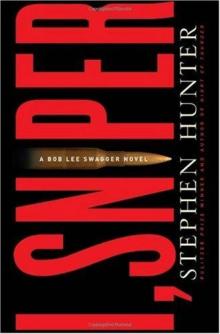 I, Sniper
I, Sniper Havana
Havana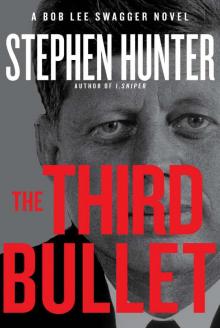 The Third Bullet
The Third Bullet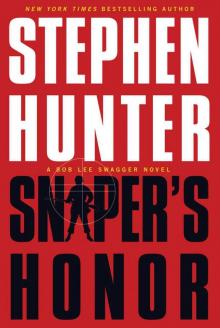 Sniper's Honor: A Bob Lee Swagger Novel
Sniper's Honor: A Bob Lee Swagger Novel Dirty White Boys
Dirty White Boys The 47th Samurai
The 47th Samurai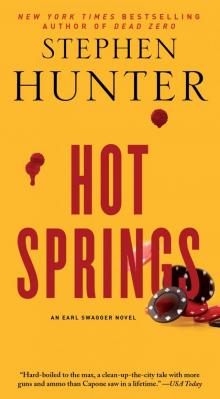 Hot Springs
Hot Springs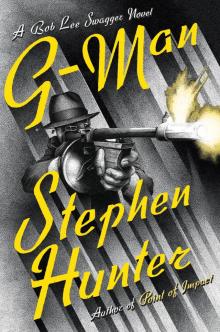 G-Man
G-Man Black Light
Black Light Time to Hunt
Time to Hunt The Day Before Midnight
The Day Before Midnight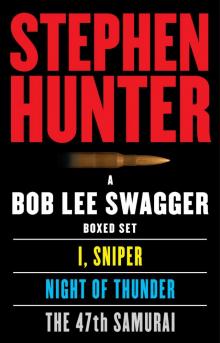 A Bob Lee Swagger Boxed Set
A Bob Lee Swagger Boxed Set The Master Sniper
The Master Sniper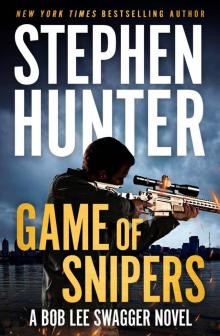 Game of Snipers
Game of Snipers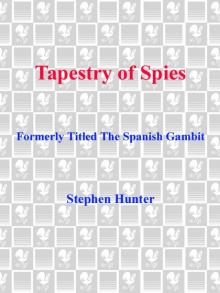 Tapestry of Spies
Tapestry of Spies Citadel
Citadel The Second Saladin
The Second Saladin Stephen Longacre's Greatest Match
Stephen Longacre's Greatest Match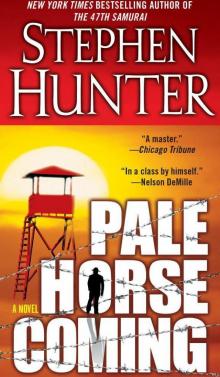 Pale Horse Coming
Pale Horse Coming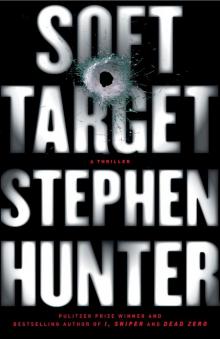 Soft Target
Soft Target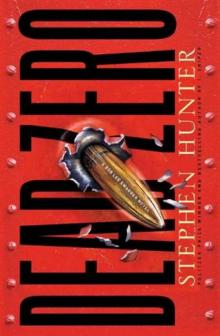 Dead Zero
Dead Zero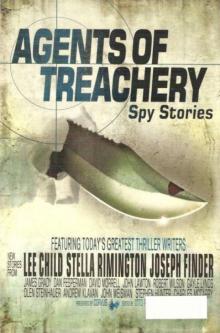 Casey at the Bat
Casey at the Bat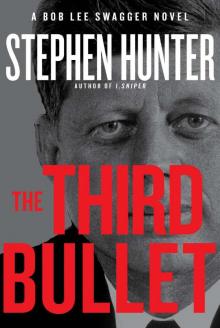 The Third Bullet bls-8
The Third Bullet bls-8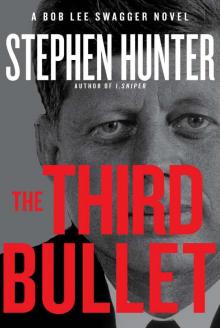 The Third Bullet: A Bob Lee Swagger Novel
The Third Bullet: A Bob Lee Swagger Novel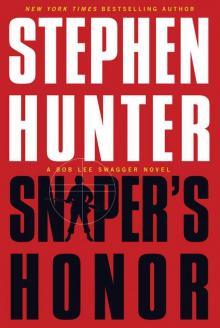 Sniper's Honor
Sniper's Honor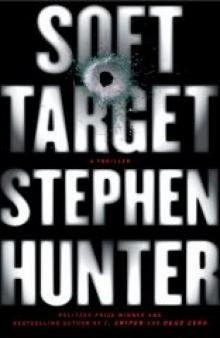 Soft target rc-1
Soft target rc-1 Black Light bls-2
Black Light bls-2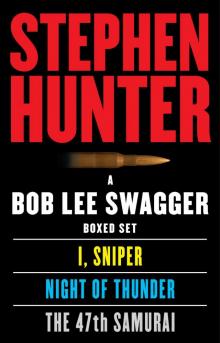 A Bob Lee Swagger eBook Boxed Set: I, Sniper, Night of Thunder, 47th Samurai
A Bob Lee Swagger eBook Boxed Set: I, Sniper, Night of Thunder, 47th Samurai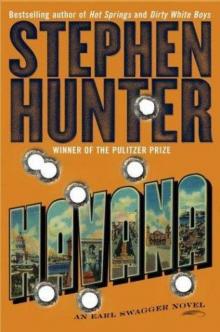 Havana es-3
Havana es-3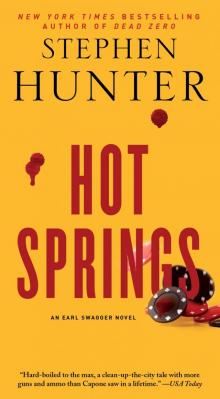 Hot Springs (Earl Swagger)
Hot Springs (Earl Swagger)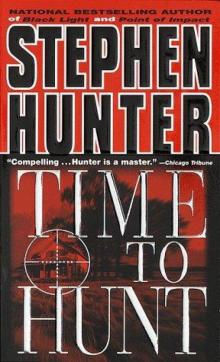 Time to Hunt bls-1
Time to Hunt bls-1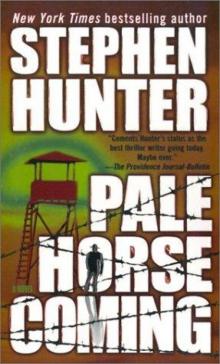 Pale Horse Coming es-2
Pale Horse Coming es-2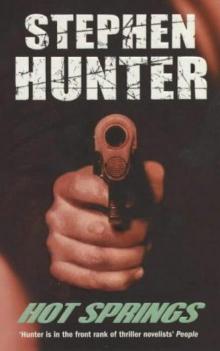 Hot Springs es-1
Hot Springs es-1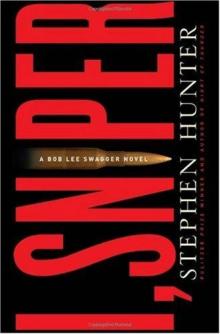 I, Sniper: A Bob Lee Swagger Novel
I, Sniper: A Bob Lee Swagger Novel